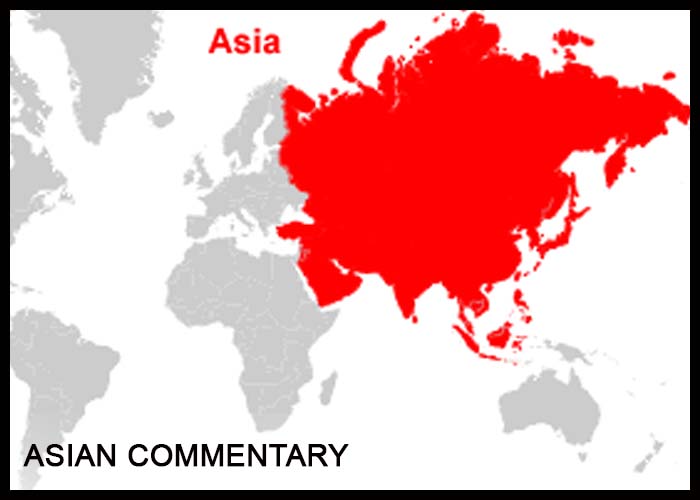Asian Markets Track Global Markets Lower
Asian stock markets are trading mostly lower on Wednesday, following the broadly negative cues from global markets overnight, as traders cashed in on recent strength in the markets ahead of the US Federal Reserve’s monetary policy announcement later in the day. Concerns about the US reaching an agreement on raising the U.S. debt ceiling is also hurting sentiment. Asian markets closed mixed on Tuesday.
U.S. Treasury Secretary Janet Yellen has warned the Treasury might run out of money to cover obligations by June 1. The cost of insuring against a U.S. default hit fresh highs after Yellen said the government will be unlikely to meet all payment obligations by “early June.”
With the Fed widely expected to raise interest rates by another 25 basis points, traders will pay close attention to the accompanying statement for clues about the outlook for rates.
CME Group’s FedWatch Tool is currently indicating an 87.5 percent chance the Fed will raise rates by 25 basis points and a 72.9 percent chance the central bank will subsequently leave rates unchanged in June.
The Australian stock market is significantly lower on Wednesday, extending the losses in the previous session, with the benchmark S&P/ASX 200 falling below the 7,200 level, following the broadly negative cues from global markets overnight, with weakness across most sectors, led by energy and financial stocks. Gold miners are the only bright spot.
Traders also continue to react to the unexpected interest rate hike by the Reserve Bank of Australia and the renewed worries about the stability of the US banking system.
The benchmark S&P/ASX 200 Index is losing 78.90 points or 1.09 percent to 7,188.50, after hitting a low of 7,174.60 earlier. The broader All Ordinaries Index is down 80.20 points or 1.08 percent to 7,379.60. Australian stocks ended significantly lower on Tuesday.
Among major miners, BHP Group is losing more than 1 percent, Fortescue Metals is declining almost 3 percent, Mineral Resources is down almost 1 percent and Rio Tinto is slipping 1.5 percent.
Oil stocks are mostly lower. Santos and Woodside Energy are losing 2.5 percent each, while Beach energy is declining more than 2 percent. Origin Energy is edging up 0.3 percent.
In the tech space, Afterpay owner Block is losing more than 2 percent, WiseTech Global is declining more than 1 percent and Xero is down 1.5 percent, while Appen is gaining almost 5 percent and Zip is adding more than 1 percent.
Among the big four banks, National Australia Bank, Commonwealth Bank, ANZ Banking and Westpac are all losing almost 2 percent each.
Among gold miners, Resolute Mining and Gold Road Resources are surging almost 6 percent each, while Newcrest Mining is gaining almost 3 percent, Northern Star Resources is advancing almost 5 percent and Evolution Mining is up more than 5 percent.
In the currency market, the Aussie dollar is trading at $0.667 on Wednesday.
The Japanese stock market is closed on account of Showa Day holiday on Wednesday. Japanese stocks ended slightly higher on Tuesday.
In the currency market, the U.S. dollar is trading in the lower 136 yen-range on Wednesday.
Elsewhere in Asia, Hong Kong is down 1.6 percent, while New Zealand, Singapore, South Korea, Malaysia, Taiwan and Indonesia are all lower by between 0.4 and 1.1 percent each. China is closed for Labor Day.
On Wall Street, stocks moved sharply lower during trading on Tuesday, with the major averages adding to the slim losses posted during Monday’s session. The major averages all showed significant moves to the downside on the day.
The major averages recovered from their worst levels of the day but still posted steep losses. The Dow tumbled 367.17 points or 1.1 percent to 33,684.53, the Nasdaq slumped 132.09 points or 1.1 percent to 12,080.51 and the S&P 500 plunged 48.29 points or 1.2 percent to 4,119.58.
The major European markets all also moved notably lower on the day. While the French CAC 40 Index tumbled by 1.5 percent, the German DAX Index and the U.K.’s FTSE 100 Index both slumped by 1.2 percent.
Crude oil prices tumbled on Tuesday on concerns about the outlook for energy demand amid fears of a potential recession in the U.S. West Texas Intermediate Crude oil futures for June ended lower by $4.00 or 5.3 percent to $71.66 a barrel, the lowest close since March 24.
Source: Read Full Article

